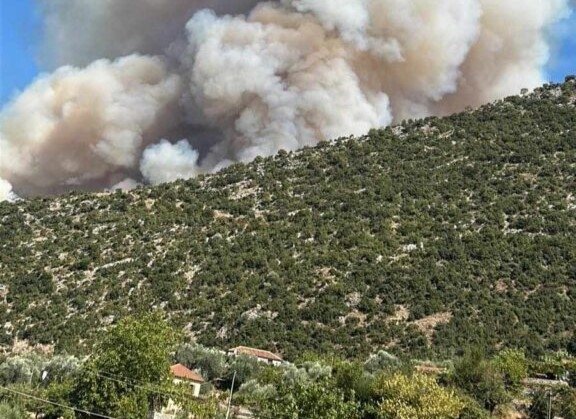August is a no-news month. We’ve heard it over and over. We’ve taken it on board.
Besides, most journalists are on holiday.
Although the newspapers and TV channels keep on publishing and broadcasting. Even if there’s no news, even with fewer journalists on the job.
What August does have, though, is fires. Every year—regular as clockwork. So much so, they almost count as a seasonal phenomenon.
Recurring bad news, if there’s such a thing.
But do you know what else is recurring: the aftermath. With whichever party’s in Opposition pointing the finger at whatever party’s in power, the government avoiding responsibility, and blame never being apportioned. Which isn’t actually that important.
Summer wildfires hit any number of countries. There’s more to the much-hymned “Mediterranean summer” than carefree living. Last year, for example, half the region went up in smoke.
Which means there are political head-to-heads elsewhere, too, albeit less frequent and intense. And, naturally, Greek television channels aren’t unique in using hyperbole to fill the gaps left in their summer programming by journalistic understaffing and the annual shortage of newsworthy content.
What may not happen abroad, though, is the near-annual repetition of the disaster. Here in Greece, we take our seats every summer to watch the same play unfold before our eyes.
Admittedly, we haven’t had mountains of victims to mourn in recent years, like we did in 2007 in the Peloponnese and 2018 in Mati.
Obviously, things have improved. But the devastation remains enormous.
And, above all, there’s nothing to guarantee it will be the last, or even that some sort of end’s in sight. And, to be fair, that’s true no matter which party’s in government.
Truth be told, I’m not even sure there is a solution. I know no one’s shared anything with me yet that sounds convincing.
The Prime Minister says the solution lies in prevention. No objections there.
But prevention’s not enough. Preventive action is never foolproof, you see, because it can’t address unforeseen circumstances or situations. You can’t actively prevent something if you haven’t predicted it first.
And, like it or not, the conditions that fuel the fires in our country have moved into the realm of the unforeseeable.
That leaves preparation and response. Which may be the most crucial aspect of all.
But the heroic, often superhuman, efforts of the firefighters and everyone else who (literally) throws themselves into the flames aren’t always enough.
They have our gratitude and our respect. But they also need all the support they can possibly get from the state and from society, delivered with wisdom, method, science and planning and without shrillness and cheap shots.
What is certain, however, is that the solution doesn’t lie in running after the fires camera in hand. Nor in playing “indignant citizens” on social media.
That’s just tacky filler for the no-news months.



